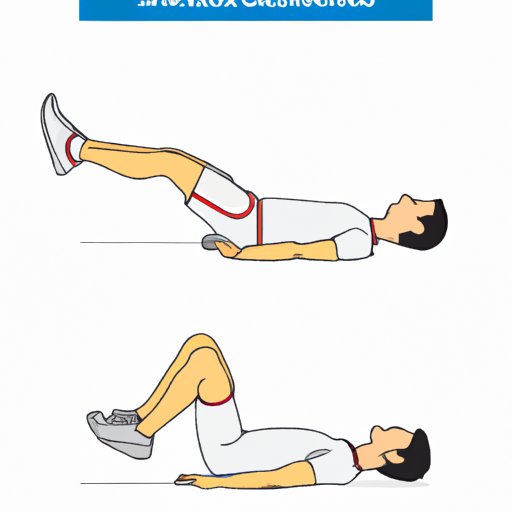Introduction
Having strong abdominal muscles is about more than just having a six-pack. Having strong abs is an important part of overall health and fitness. Not only do stronger abs help protect the spine from injury, but they also improve posture and balance, increase strength and power, and promote better digestion. In this article, we’ll explore what abs are, how they work, and how to strengthen them through exercise and nutrition.
Anatomy of the Abdominal Muscles and How They Work
The abdominal muscles consist of four layers: the rectus abdominis (the “six-pack” muscle), the external obliques, the internal obliques, and the transverse abdominis. These muscles work together to provide support for the spine and to flex and rotate the torso. When the muscles are in balance, they provide good core stability and make it easier to perform daily activities like walking, bending, and lifting.
Exercises to Strengthen Your Abs
To strengthen your abs, you should incorporate a variety of exercises into your routine. Some examples of abdominal exercises include crunches, planks, Russian twists, leg lifts, and side bends. It’s important to focus on form and to use proper breathing techniques when performing these exercises. For best results, aim for three to four sets of 12 to 15 repetitions.

Core Stability: The Benefits of Stronger Abs
Core stability is the ability to maintain control and balance of the body while performing dynamic movements. Having strong abs helps to improve core stability, which can reduce the risk of injury and help with athletic performance. According to a study published in the Journal of Strength and Conditioning Research, “core stability training can improve balance, coordination, and reaction time.”

Nutrition for Building and Maintaining Your Abs
In addition to exercise, nutrition is an important factor in building and maintaining your abs. Eating a balanced diet that includes lean proteins, complex carbohydrates, healthy fats, and plenty of fruits and vegetables will help you reach your goals. It’s also important to get enough of the right types of micronutrients, such as vitamins A, B, C, and D, as well as calcium, magnesium, and zinc.

Common Mistakes to Avoid When Training Your Abs
When training your abs, it’s important to avoid some common mistakes. Doing too much too soon can lead to overtraining and injury, so it’s important to start slowly and gradually increase the intensity. Neglecting proper form can lead to ineffective workouts, so be sure to focus on engaging the core muscles and using good posture. Finally, remember to take rest days to give your body time to recover and rebuild.
Conclusion
Stronger abs can have a positive impact on overall health, fitness, and performance. To achieve and maintain strong abs, you should incorporate a variety of exercises into your routine, focus on proper form, and eat a balanced diet that includes adequate amounts of macronutrients and micronutrients. Additionally, it’s important to avoid common mistakes such as doing too much too soon and neglecting proper form. By following these tips, you can achieve your goal of having stronger abs.
(Note: Is this article not meeting your expectations? Do you have knowledge or insights to share? Unlock new opportunities and expand your reach by joining our authors team. Click Registration to join us and share your expertise with our readers.)
